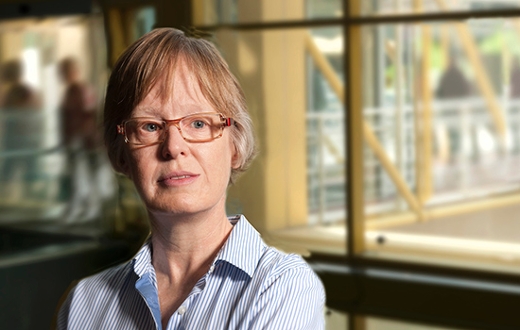Post-traumatic stress disorder (PTSD) is a sizeable issue in the United States military, affecting approximately 20 percent of all Veterans. Among women, the primary cause of PTSD is sexual abuse or harassment by colleagues while on active service—and it is common. Research suggests as many as one in four servicewomen experiences sexual assault, while more than half are victims of sexual harassment.
For these women, the post-service outlook may be grim since PTSD can lead to avoidance issues, insomnia, anxiety and depression. Physically, symptoms range from chronic pain to obesity to cardio-vascular disorders.
Until now, the standard treatment for female Veterans with PTSD has been cognitive processing therapy (CPT), a science-based approach that teaches patients practical tactics to help challenge or neutralize negative thoughts tied to their trauma. Seen as the “gold standard,” in PTSD treatment by the Department of Defense and the Veterans Heath Administration, CPT has its merits, but also flaws. Researchers find more than half of female Veterans enrolled in government-backed CPT programs drop out of treatment. Half of those who complete treatment report continued PTSD symptoms.
But an alternative approach has emerged.
Yoga, specifically Trauma Center Trauma-Sensitive Yoga (TCTSY), targets the effects of stress on the body’s nervous system. Pioneered by David Emerson, co-director of the Center for Trauma & Embodiment (CFTE) at the Justice Resource Institute, trauma-sensitive yoga is believed to alleviate PTSD by creating connections between the body and mind and restoring a sense of ownership (or agency) over emotions. The center also offers Trauma Informed Weight Lifting, another research-based adjunctive treatment for complex trauma and PTSD.
However, doubts have lingered about its effectiveness. A ground-breaking study led by Emory University’s Ursula Kelly is set to shift thinking on the use of TCTSY.
Kelly, an Associate Professor at the Nell Hodgson Woodruff School of Nursing, recently published the interim results of a large-scale, five-year investigation into the effects of cognitive processing therapy compared to trauma-sensitive yoga.
The early results tell a clear story. Working with colleagues from Emory University and the Atlanta Veteran Associate Health Care System, Kelly has found empirical evidence yoga can be just as effective as CPT in the treatment of PTSD.
Not only that, the study shows TCTSY delivers positive results considerably faster than cognitive therapy; and that more than 60 percent of patients are seeing the treatment through to completion compared to just 34 percent of those in cognitive therapy programs.
Kelly’s study, which will be published in full later this year, analyzed outcomes in the use of CPT and TCTSY across 152 female Veterans diagnosed with PTSD between 2016 and 2021. Using clinical measuring tools, she and her colleagues have tracked the impact of 10 sets of weekly, 60-minute yoga sessions against a control group of 12 weekly CPT sessions, each lasting 90 minutes and led by a clinician.
The researchers find that while PTSD is successfully reduced by both treatments, patients in the TCTSY group were starting to see improvement mid-intervention. This compares favorably to the CPT group, who reported feeling better only two weeks after the treatment had concluded.
Kelly has been selected to address the Independent Review Commission established by President Biden, which is examining how the Department of Defense manages sexual trauma in the military, later this year.
With quick results and low dropout rate among yoga participants, Kelly is quick to call it a “game-changer” for women Veterans in the United States.
"Our study is the first of its kind to apply evidence-based research methods to truly understand the potential of trauma-sensitive yoga in treating this hugely problematic and difficult-to-treat problem," Kelly said.
"These results are hugely exciting as they point to an alternative to the standard approach that is not only just as effective, but potentially quicker, cheaper and easier for women to access and to stick to, while offering the additional advantage of scalability. The results are a major development and a possible game changer in clinical care for our veterans."

